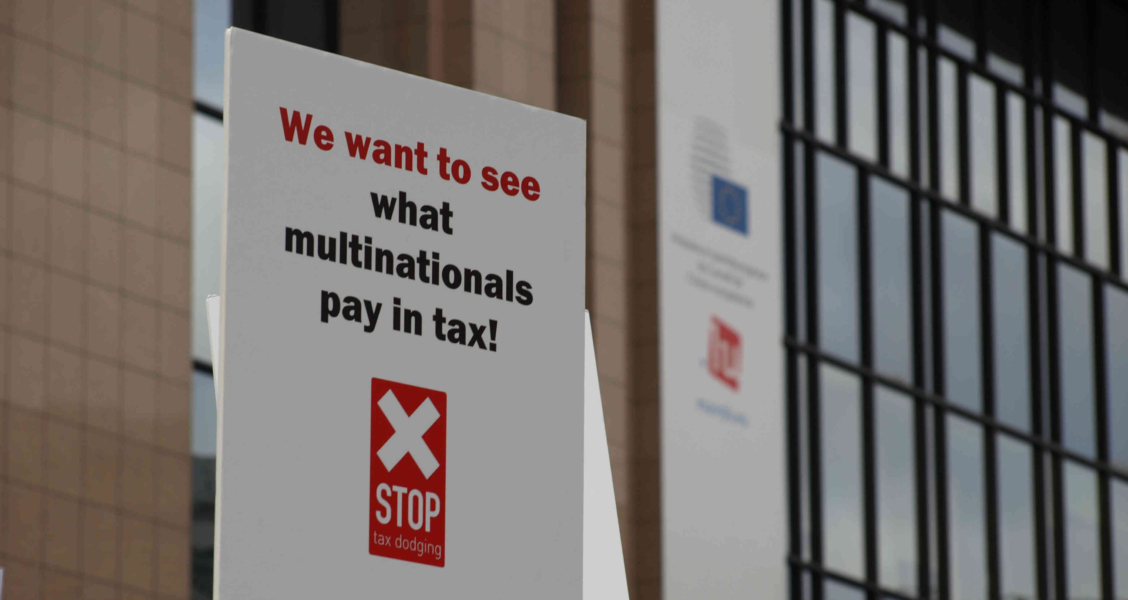What do BNP Paribas and Tata Motors have in common? They both disclose their basic financial information for each country they are active in. This means that the public can see where they operate, where they make profits as well as where and what they pay in taxes.
They do so due to two similar legislative drivers – the EU’s Capital Requirement Directive and the Indian Companies Act. The former obliges EU banks to publish key financial data, such as their turnover, pre-tax profits, public subsidies received and taxes paid on a country-by-country (CBC) basis, i.e. in each country they operate in. The latter requires that companies publicly disclose financial information on a subsidiary-by-subsidiary (SBS) basis, i.e. for each existing subsidiary entity regardless of their location.
But has this practice affected their business performance?
BNP Paribas and Tata Motors are two of the 28 multinationals Transparency International EU analysed in its latest report “Do Corporate Claims on Public Disclosure Stack Up?“. This report evaluates the impact of public financial disclosure on corporate competitiveness by assessing the performance of 14 European and 14 Indian multinationals. Performance of each company was analysed over three full-year reporting periods using publicly available information, as well as companies’ performance across their sector at the global and regional level.
Transparency International has long campaigned for what is usually referred to as public country-by-country reporting (CBCR), which is the process of publishing data by multinationals for each country they operate in as part of their annual financial statements. This would allow citizens to hold their governments and companies operating in their countries to account. However, transparency-sceptics often claim that public availability of such information would have a negative impact on companies’ competitiveness due to the disclosure of trade secrets and confidential business strategies.
For instance, Business Europe recently stated that public CBCR could distort competition and damage the attractiveness of the EU as an investment destination.
However, these claims are never backed up by concrete evidence. On the contrary, our research shows that there is no correlation between public disclosure and standard measures of competitiveness. More than 90% of the assessed Indian companies that publicly report on a SBS basis had a revenue growth comparable or higher than an average of other international companies in a similar sector. Similarly, 86% of the European companies that already publicly report on a CBC basis improved or maintained their revenue performance.
It looks like resistance to EU legislation on public CBCR is not based on facts, but rather on ideological convictions. Our analysis rules out any potential negative impact of greater transparency on corporate performance. The burden of proof is now on the business world to explain the opposite.
Our report further highlights how regulation can be vital to increase corporate transparency and accountability. Transparency International’s latest publication from the ‘Transparency in Corporate Reporting’ series shows that multinationals still have a long way to go until they can call themselves responsible global actors. It also shows that citizens know next to nothing about the companies operating in their countries.
In the meantime these calls from civil society have been backed by many other stakeholders, ranging from accountants, to investors, to trade unions, and more recently even by PricewaterhouseCoopers.
This is why the EU, bearing the responsibility of being the largest consumer market in the world, must do more to promote corporate accountability standards by adopting robust legislation on tax transparency.
In fact, the EU was the first to adopt measures regarding the disclosure of payments to governments made by European companies in the extractive and logging industries. Following the EU, Canada and Norway have also moved in this direction using the EU’s measures as a prototype. Most recently, the U.S. Securities and Exchange Commission took a decision requiring oil, gas and mining companies listed on U.S. stock exchanges to publicly disclose their payments to governments around the world.
This demonstrates how the EU could be a forerunner on corporate transparency matters and proves it should not shy away from being the first one adopting public CBCR.
In order for the EU to adopt public CBCR, we need to jump through two more hoops:
- The European Parliament must substantially improve the current European Commission legislative proposal.
- The EU Council must adopt the final text.
We will be back after the summer to make sure that this happens.




